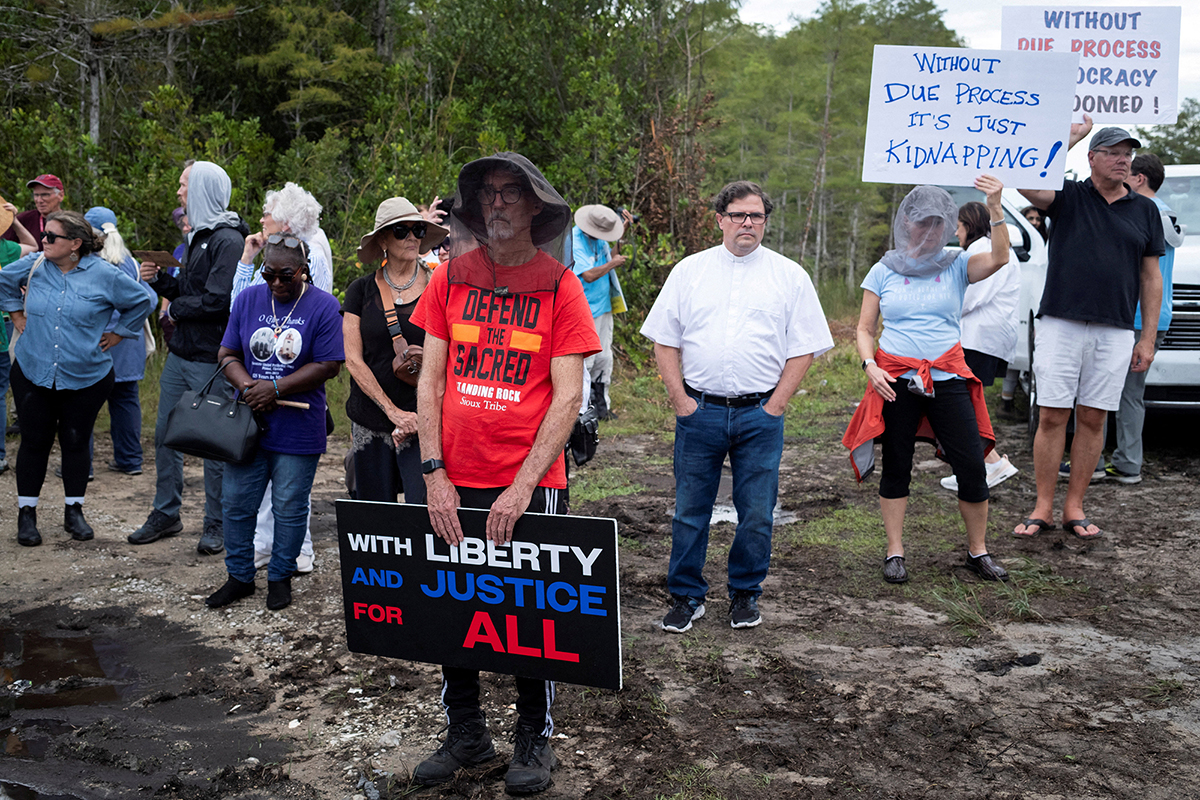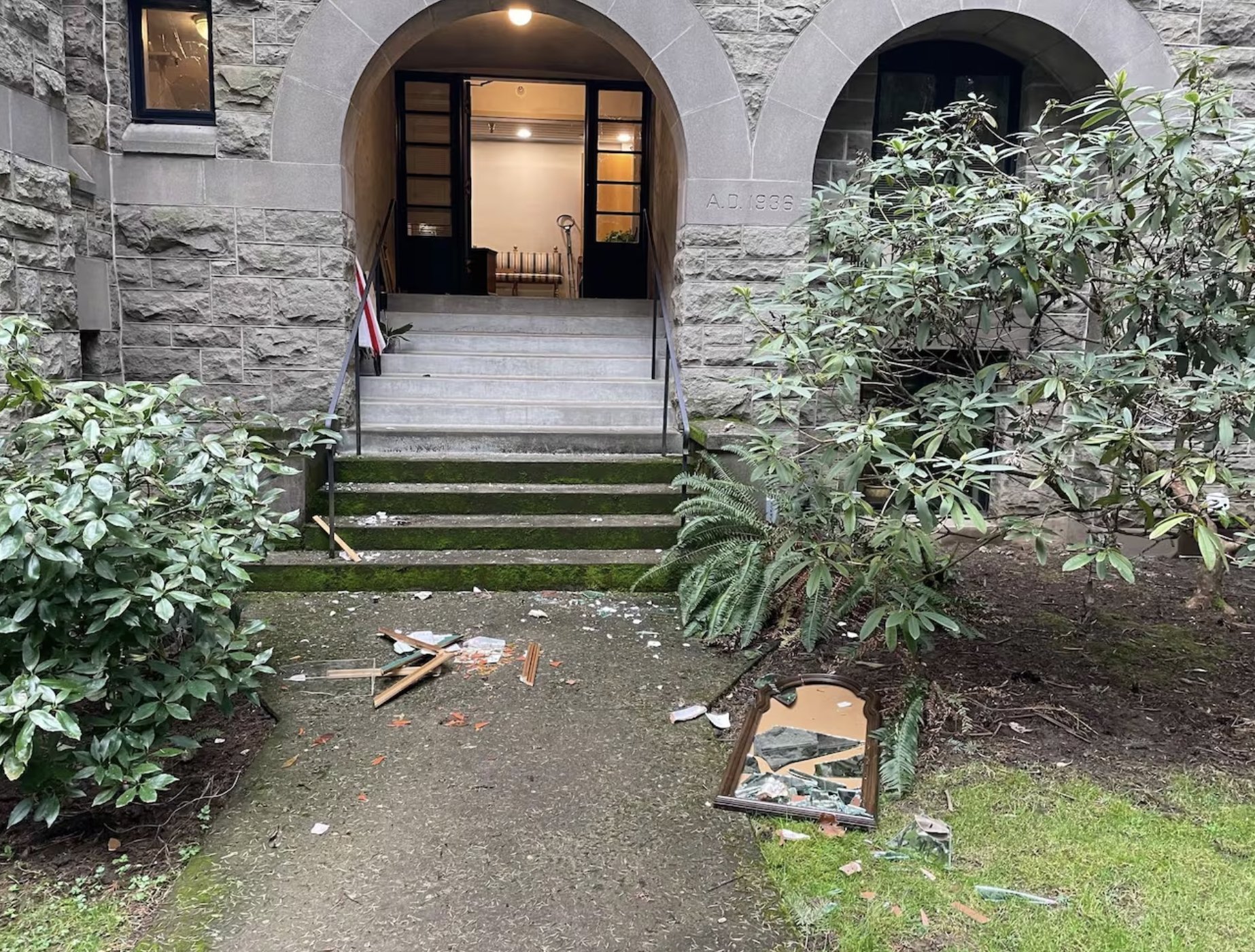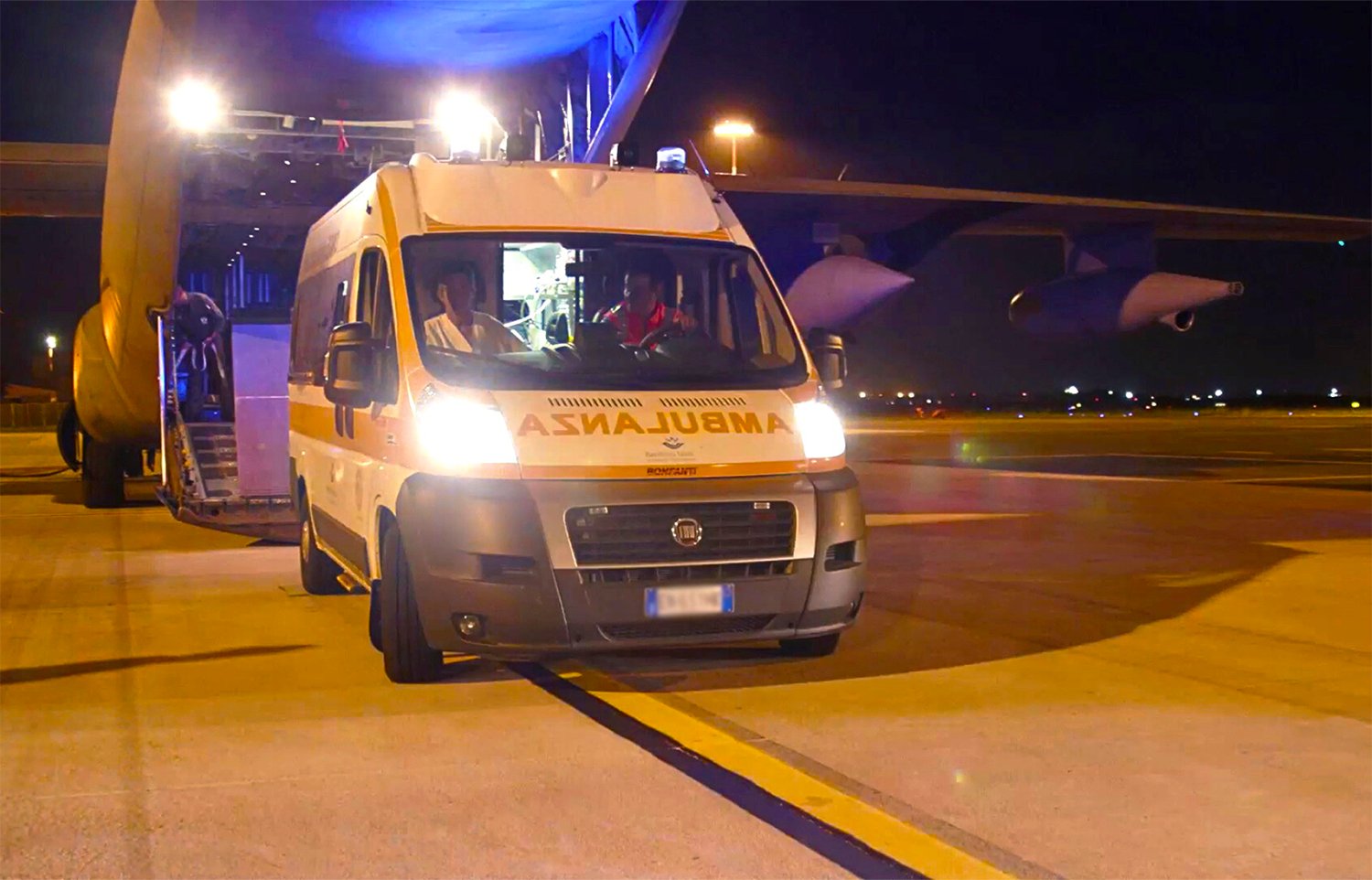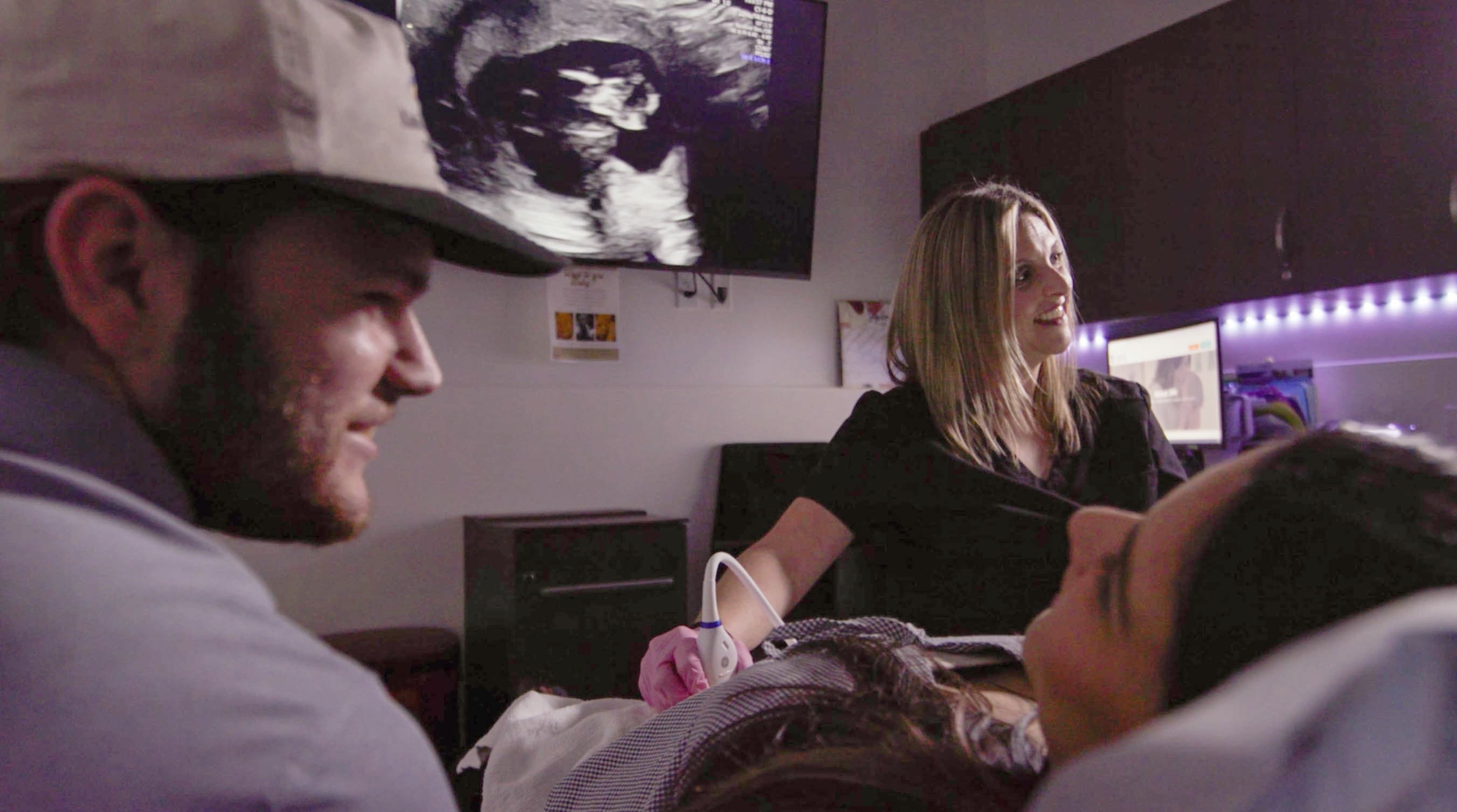More states move to copy ‘Alligator Alcatraz’ amid reports of inhumane conditions for migrants

Abp. Wenski of Miami said immigration reform to regularize the situation of migrants would be more effective
A nonprofit center in Florida reports one of its client’s family members — despite having an active asylum claim and no criminal record — was recently detained on his way to work and sent to Florida’s “Alligator Alcatraz.”
The migrant detention facility, known for its deliberate placement in Florida’s Everglades, is being used as a model for other states to set up similar facilities.
The detained man is one of five landscape workers who were on their way to a job in the nearby suburb of Wellington when they were apprehended by law enforcement the second week of August, according to Mariana Blanco, director of operations at the Guatemalan Maya Center, a nonprofit advocacy group for displaced Guatemalans in Lake Worth, Florida.
U.S. District Judge Kathleen M. Williams in Miami ruled that the facility is causing extensive harm to the Everglades and can remain open for now, but cannot be expanded and cannot take in any more immigrant detainees. Her decision was for a case filed by Friends of the Everglades and the Center for Biological Diversity. The groups were joined in the suit by the Miccosukee Tribe of Indians.
Williams gave the state of Florida and the federal government 60 days to dismantle the detention center. Florida immediately filed a notice with the U.S. Court of Appeals for the 11th Circuit that it will appeal the ruling.
In an Aug. 14 statement, Miami Archbishop Thomas G. Wenski said there are some 60,000 people detained and that an enforcement-only approach is costly both to taxpayers and families whose lives are disrupted by family members detained.
The archbishop said those being detained are not the worst of the worst — referring to language the Trump administration has used to justify its immigration enforcement policies — but are “for the most part hard working men and women who do in fact contribute to our communities.”
According to statistics for fiscal year 2025 maintained by Immigration and Customs Enforcement and accessed Aug. 20 by OSV News, 70.4% of the 59,380 people detained by ICE have no criminal convictions and would therefore be entitled to the presumption of innocence until proven guilty in the U.S. justice system.
These 41,822 persons in detention without criminal convictions include 17,558 people with pending criminal charges (29.6% of the total in ICE detention) and 26,947 people accused of immigration violations, but who have neither criminal convictions nor pending criminal charges (45.4% of the total in ICE detention).
“A program to regularize migrants would be more humane, more economical, more worthy of an America that aspires to be great again,” Archbishop Wenski said.
“Alligator Alcatraz” is located within the territory of the Diocese of Venice but is relatively close to the cities of Miami and Naples.
“There have been a lot of raids in our city and this week a lot of raids affecting our (Guatemalan Maya Center) community,” Blanco said.
Asked if she knew where many of the detainees were being repatriated to, she said to their home countries.
“What we are seeing is a complete violation of their right to seek asylum — many of these cases had asylum pending and had work permits, but were detained. We are no longer respecting the laws in place for immigration,” Blanco added.
Besides the environmental lawsuit, the Everglades detention center has been the subject of another case on alleged inhumane conditions at the facility and lack of due process for detainees, though the due process claim has been thrown out.
The Associated Press reported that in a 47-page ruling late Aug. 18, U.S. District Judge Rodolfo Ruiz in Miami “dismissed part of a lawsuit that claimed detainees were denied access to the legal system” at the detention facility. Such claims, he said, are now moot because the Trump administration has since determined their cases can be heard at the Krome North Processing Center near Miami.
Ruiz granted a change of venue for claims about inhumane conditions to be addressed by the U.S. District Court for the Middle District of Florida.
Other ICE detention centers like “Alligator Alcatraz” have been under consideration for other locations, including in North Florida, Indiana and Nebraska.
The North Florida facility, the vacant Baker Correctional Institution in Sanderson, was dubbed “Deportation Depot” by Florida Gov. Ron DeSantis.
On Aug. 6, the Department of Homeland Security announced “a new partnership with the state of Indiana to expand ICE detention space by 1,000 beds.” According to news reports, the Miami Correctional Facility in Bunker Hill, Indiana, has 1,000 unused beds that are being made available to ICE to detain migrants. The facility has been dubbed by DHS as the “Speedway Slammer.”
Republican Gov. Mike Braun said in a statement, “Indiana is taking a comprehensive and collaborative approach to combating illegal immigration and will continue to lead the way among states.”
In Nebraska, Gov. Jim Pillen, also a Republican, announced Aug. 19 that ICE is developing a detention center in McCook, a city of about 7,500. DHS labeled the facility the “Cornhusker Clink.”
Abp. Wenski of Miami said immigration reform to regularize the situation of migrants would be more effective
Subscribe to Read All St. Louis Review Stories
All readers receive 5 stories to read free per month. After that, readers will need to be logged in.
If you are currently receive the St. Louis Review at your home or office, please send your name and address (and subscriber id if you know it) to subscriptions@stlouisreview.com to get your login information.
If you are not currently a subscriber to the St. Louis Review, please contact subscriptions@stlouisreview.com for information on how to subscribe.






